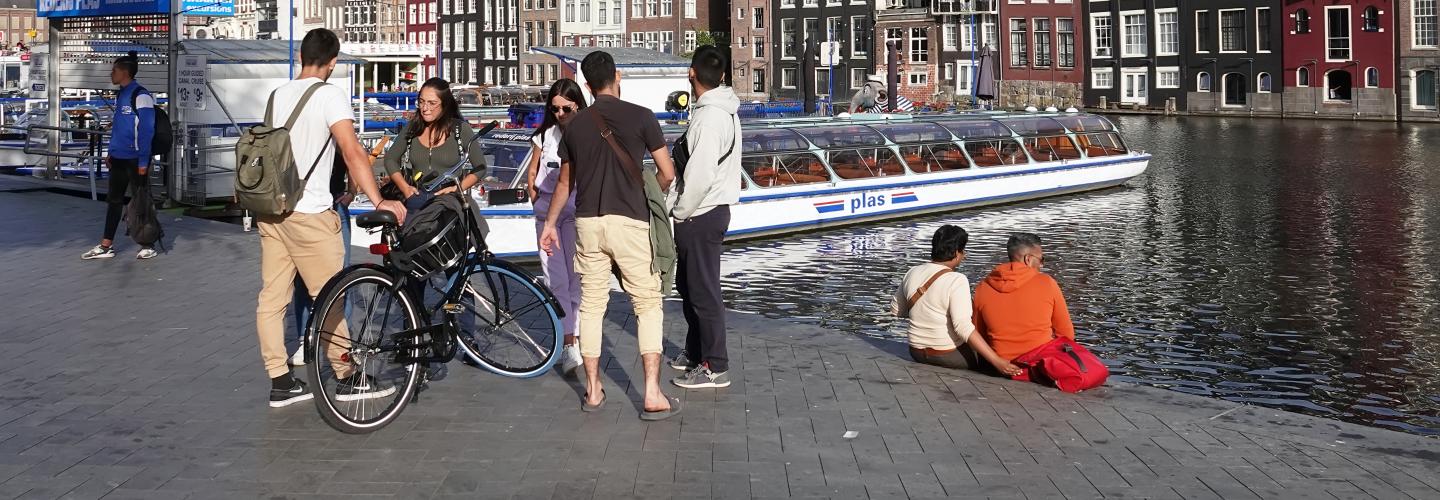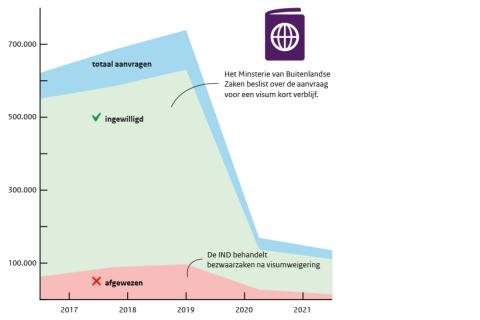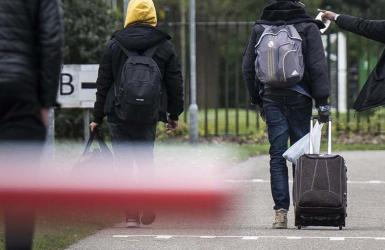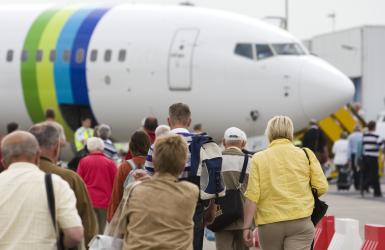Would you like to apply for a Short Stay Visa? Then go to the page short stay, holiday or business visa.
Visiting a Schengen country with a visa
To get a short-stay visa, an applicant must demonstrate the purpose of the trip plausible with documents, including travel documents. The applicant must also meet the other rules in the Visa Code. This is a European Regulation containing all visa rules. The short-stay visa is also called the tourist visa or Schengen visa. Anyone issued with this visa receives a special sticker in their passport. This sticker gives authorisation to travel through a Member State or stay there temporarily. Here, temporary means as long as the visa is valid, and no longer than 90 days within a period of 180 days (half a year). A Schengen visa is valid for the whole Schengen Area, unless the sticker states otherwise.
Laws and rules for all Schengen countries
Every year, hundreds of thousands of people apply for a short-stay visa to come to the Netherlands. All these applications are assessed against the so-called Visa Code. The 26 Schengen Countries must all enforce the rules of the Visa Code in the same way. And there is more legislation to take into account, for example the Schengen Border Code, the Treaty on the Functioning of the European Union (TFEU), the State Visa Act (Rijksvisumwet), the Aliens Act (VW) and the General Administrative Law Act (AWB).
The role of the IND in visa applications
Every now and then, people post negative messages or cases on social media about the Dutch visa policy. This usually happens after a visa application is refused. In the Netherlands, the Ministry of Foreign Affairs processes visa applications. The IND comes into the picture when they reject an application. We handle the objection letters that people submit if they do not agree with their rejection. Then we consider the objection letter, check the application again against the laws and regulations and sometimes investigate further.
Compliance with the Visa Code
The Ministry only issues a short-stay visa if there are so-called binding ties for return. This means that someone gets a visa if they can demonstrate that after a stay of a maximum of 90 days, they will return to their country of origin.
This is likely, for example if:
- there are economic ties with the country of origin, such as a job or a business; or<
- there are social ties with the country of origin, for example a marriage or children.
If return is not likely, the visa application will be rejected. The Visa Code contains more requirements that someone must meet. For example:
- they must have a clear purpose for travel;
- their travel documents must be valid;
- they must have sufficient means to sustain themselves;
- they do not pose a threat to public order or public health.
We look at the person and document
At the IND, we also carefully consider each decision we take on a visa application. Of course we check if the applicant meets the rules. But we do more than checking documents. We always balance someone’s situation against the intention of the Visa Code. We understand that it is disappointing if a visa application is still rejected, for example because the binding ties for return have not been made sufficiently likely or because the purpose of travel is not clear. We also understand that it is even more disappointing if an applicant does meet all other requirements.
Small percentage rejected after visa application
Of the hundreds of thousands of applications each year, the Ministry of Foreign Affairs only rejects a small percentage. If the IND then also rejects the application, the applicant really does not meet the Visa Code. Just like all other Schengen Countries, we have to comply with this legislation.
Balance between migration, security and accessibility
We always try to explain clearly why we refuse a visa application. This, of course, does not make things nicer, but visa policy is essential to maintain the right balance between migration flows and security. And at the same time, it is also essential to remain a country accessible to people who want to come here for matters such as sports, trade, tourism or a family visit. At the IND we continuously try to find such a balance.
Short-stay visa still rejected?
Have the Ministry of Foreign Affairs and the IND both refused the short-stay visa? Then it is possible to submit a new and better substantiated visa application or to appeal to a court.




